To read the thoughts of many French opinion leaders and their supporters on social networks about Russia is to despair of humanity. They base almost all their analyses on misunderstandings that can only lead to erroneous conclusions.
The first myth created by the communists and Putin's propaganda is that the USSR (as ideologies are, in our opinion, only passing fads in the lives of nations, we will not distinguish here between Soviet Russia and the USSR) would have liberated us from Nazi Germany. First of all, for France (having to remind the reader of this seems incredible to me), this is false: it was the Anglo-Americans and the Free French forces who liberated us. One could reply that it was thanks to the sacrifice of millions of Soviets that the Anglo-Americans and the FFL were able to liberate us. However, this is neither true nor false. It would be more accurate to say that this sacrifice greatly accelerated the German defeat, which would have happened anyway, and that Stalin used his soldiers as cannon fodder. The Red Army was vastly under-equipped compared to the Germans, but thanks to Russia’s vast territory, lack of infrastructure, climate and total disregard for human life, it managed to stop the Germans. To be convinced of this, it is enough to read General Guillaume, who spoke and read Russian and who, in 1945, was appointed by General Charles de Gaulle as military attaché in Moscow, to understand how such an underdeveloped country was able to resist and defeat part of the German army. The first reason that General Guillaume observed was its absolute indifference to losses, which he believed was linked both to the totalitarian regime and to the Russian culture. It should be stressed again and again that the massive counter-attack by Soviet Russia wouldn’t have reached Berlin without Anglo-American equipment. Stalin and Marshal Zhukov themselves acknowledged this. Half of the Soviets' medium bombers were Anglo-American, as was 92% of the railway equipment produced. The United States and Great Britain delivered nearly 50,000 jeeps, 30,000 motorbikes, 400,000 trucks and artillery tractors that transported Russian troops and their equipment. In addition, the Anglo-Americans provided the Russian troops with 15 million pairs of boots, 16,000 telephones and 28,700 radios for their communications, special fuel for their planes, food, tanks, etc. Even Stalin's organs, the famous Katyusha, were mounted on American trucks.
Faced with the American military-industrial complex, German industry had no chance in the medium term. None at all. Then, go and tell the Poles, Balts, Hungarians, etc., that the Soviets liberated them, when for these peoples it was just one totalitarianism replacing another. Moreover, let us always remember that at the beginning of the war Stalin was Hitler's ally. Without this alliance, Hitler would surely never have attacked France, for fear of having to fight on two fronts two thousand kilometres apart. French airmen died because French Communist workers had sabotaged planes on the production lines in France at the express request of Stalin, who up to the last moment refused to believe that Hitler would betray him. Which is the second misunderstanding.
Putin's imperialist regime is not anti-German-Nazi because of Nazi ideology and its crimes, but because it resents Hitler for betraying Stalin instead of dominating the world together with him. Around Putin, there are many neo-Nazis. The best known of them is the founder of the Russian mercenary Wagner group, who is in charge of Putin's dirty work: Dmitri Outkine, who has even tattooed himself with the SS insignia. One could also mention Joda, leader of the pro-Russian neo-Nazi Donbass militia "Sparta", who was posthumously decorated by Putin in early 2022. Or Putin's intellectual, Aleksander Dugin, founder of the National-Bolshevik Party. With him and a circle of influencers, which is the third misunderstanding, they have been preparing for 15 years a large-scale war against Ukraine, NATO and the West. Through television programmes, massive issues of books and 700 comics for teenagers every year, they promote neo-imperialist and neo-stalinist discourses. This propaganda encourages unbridled revengeful imperialism, rehabilitates Stalin and demonstrates that if Hitler had not been betrayed, Russia and Germany would be the masters of the world today. Prokhanov, Putin's chief influencer, even proudly declares that "Putin is not Yeltsin's successor, but Stalin's". Putin himself says that he felt humiliated when the Berlin Wall fell. The stated aim of this propaganda is to destroy the EU and NATO and get the member states back into a Eurasian union under Russian domination.
And this is the fourth misunderstanding: the entire intelligentsia around Putin rejects the nation-state and considers the pro-Putin French sovereigntists only as useful idiots within the EU. It openly declares itself in favour of the regrouping of nations under or within the Russian empire.
This is the fifth misunderstanding. We believed that Sovietism was just a singularity, whereas it was simply the continuation of Russian imperialism, which for three centuries has been attacking and colonising the neighbouring countries and persecuting and deporting their peoples.
The worst is the sixth misunderstanding: having abandoned all ambition, and therefore political power, the political leaders of Western Europe, their diplomats, their generals, their senior civil servants, their "experts", were unable to see that in Russia, this ambition for power survived intact and was even at its peak. Even today, not only will they admit that they never believed that Russia would invade Ukraine, but that they still do not understand why Putin did it.
Read also
The juicy business of pro-Russian influencers made possible by the mass media
On social networks, it's easier to gain an audience than to make money. There are a number of solutions for monetising the audience - some more ethical than others.
Patrick Edery
Would De Gaulle be pro-Russian today?
This question may seem incongruous to many of our European readers for whom the General is the symbol, like Churchill, of resistance to invasion, of refusal to submit to the law of the strongest. The Second World War showed us that there are two schools of thought when faced with an invader.
Patrick Edery
Russian propaganda in full swing, Moscow can thank Sarkozy & Berlin
The month of September may have seemed strangely quiet in France, but it was nonetheless a time of major upheavals.



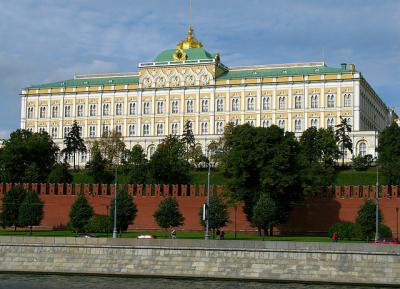

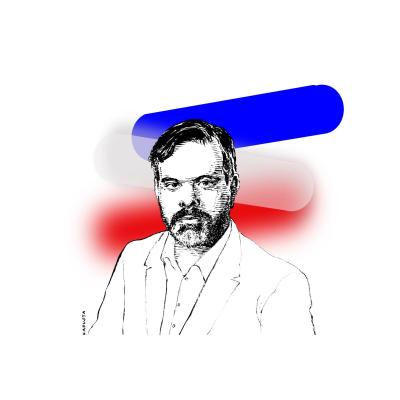
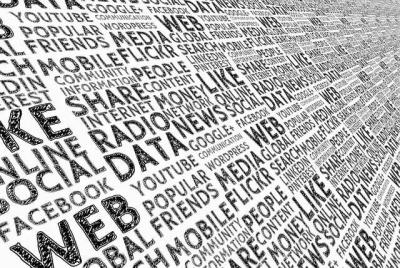

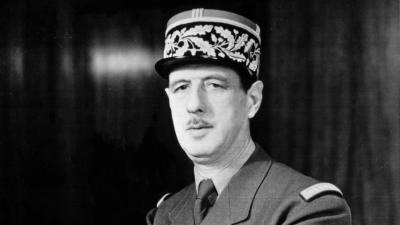

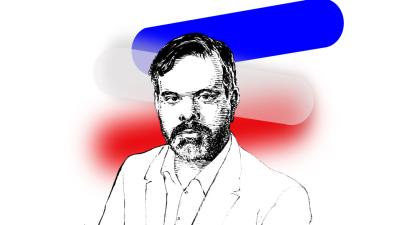

Comments (0)